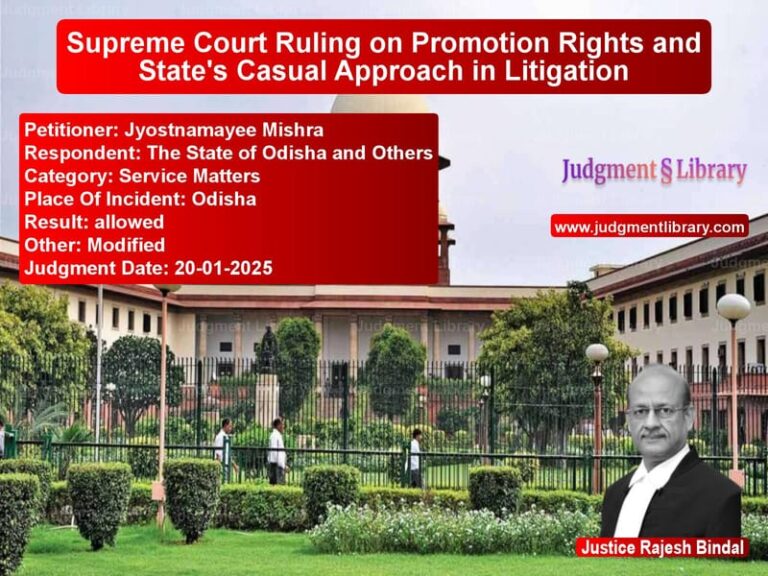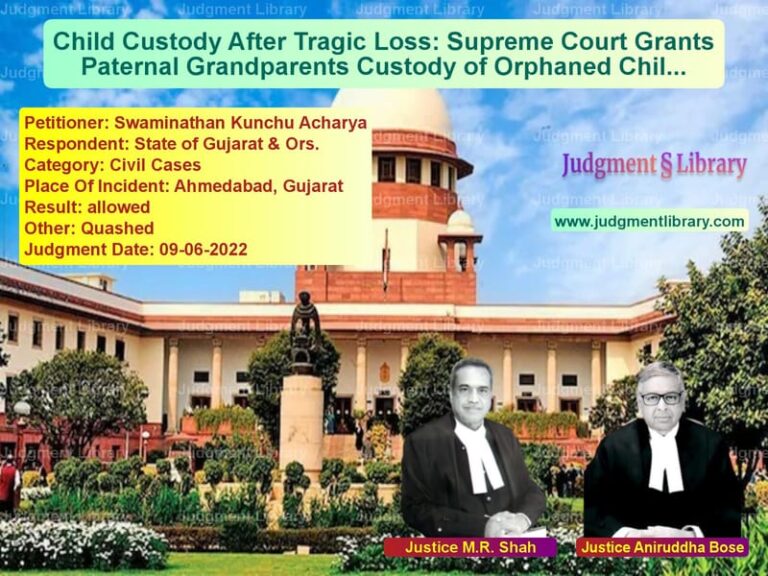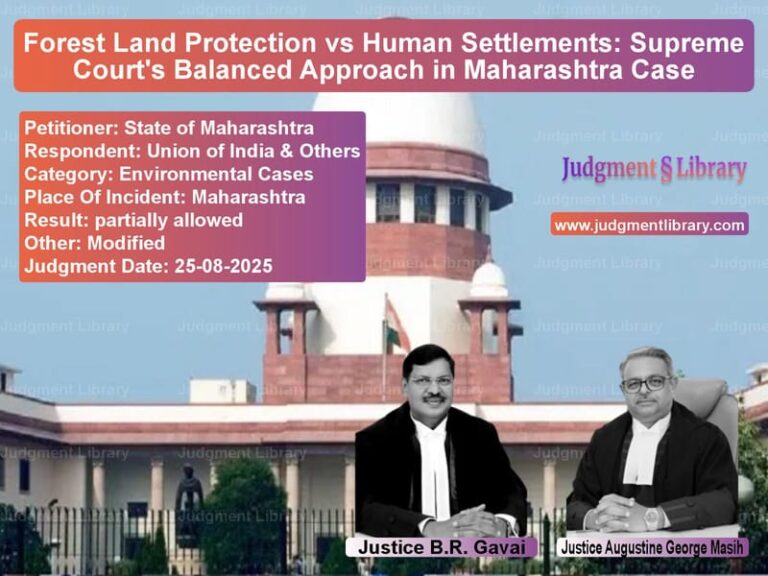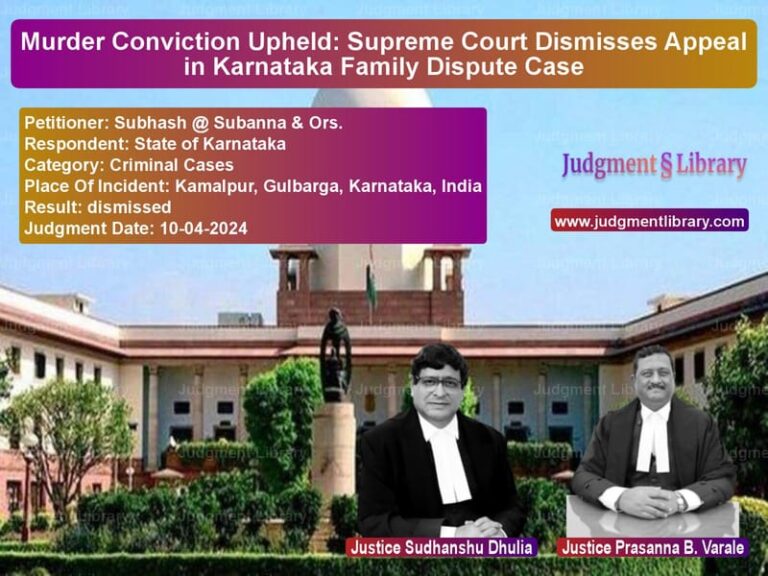Land Compensation Dispute: Supreme Court Sets Aside Madhya Pradesh High Court’s Order
The Supreme Court of India recently ruled on a crucial land acquisition case, State of Madhya Pradesh & Anr. vs. Radheshyam & Ors., which revolved around the compensation awarded for land acquired under the Land Acquisition Act, 1894. The dispute centered on the deduction percentages applied to the valuation of acquired land and the method used to determine its market value.
The Madhya Pradesh High Court had previously modified the Reference Court’s order by reducing the deductions for development charges from 48% to 35%, leading to a substantial increase in compensation for landowners. The Supreme Court, however, found that the High Court’s reliance on an earlier case (Upendra Singh vs. State of M.P.) to determine compensation was flawed, as it did not account for the differences in land valuation.
Background of the Case
The case pertains to the acquisition of 38.178 hectares of land in Village Sala, District Dhar, Madhya Pradesh, for the rehabilitation of displaced persons affected by the Sardar Sarovar Dam project. The acquisition was initiated under Section 4(1) read with Section 17(1) of the Land Acquisition Act, 1894.
The Land Acquisition Officer (LAO) initially awarded compensation as follows:
- Irrigated land: Rs. 47,165 per hectare
- Unirrigated land: Rs. 29,621 per hectare
- Solatium: 30%
- Additional compensation: 12%
Dissatisfied with the compensation, landowners sought a reference under Section 18 of the Act, arguing that the valuation was too low.
Arguments by the Parties
Appellant (State of Madhya Pradesh)
- The state argued that the High Court erred in reducing the deductions for development charges from 48% to 35%.
- It was contended that the High Court based its decision on small land sale exemplars, which were not reflective of large-scale land acquisitions.
- The government claimed that the compensation was inflated beyond reasonable market rates.
Respondents (Landowners)
- Landowners argued that the Reference Court’s deductions were excessive and should be reduced to 35%.
- They relied on the Upendra Singh case, where the High Court had applied a 35% deduction for similar land acquisitions.
- They maintained that the market value used in the calculation was justified.
Key Observations by the Supreme Court
The Supreme Court analyzed the valuation process and the deduction percentages applied by different courts:
- The Reference Court deducted 65% from the land valuation for its large area and an additional 48% for development charges.
- The High Court modified this, applying only a 35% deduction for both development and land utilization.
- The Supreme Court noted that land valuation should be based on its actual market value and development potential, rather than on sale exemplars of small plots.
The Court ruled:
“We failed to understand how the market value determined in the case of Upendra Singh would automatically be applied to the land acquired in the present case, without recording any finding that both lands are in the vicinity, identical in nature, and similarly situated.”
Final Verdict
The Supreme Court set aside the High Court’s judgment and remitted the matter back for fresh determination of compensation. It directed the High Court to:
- Re-evaluate the market value of the acquired land based on sound legal principles.
- Reassess the appropriate deduction percentage for development charges based on evidence.
- Consider the differences between the present case and the Upendra Singh case before making a final ruling.
Conclusion
This judgment reaffirms that land compensation must be based on proper valuation principles and should not be arbitrarily increased without evidence. The ruling ensures that compensation is fair to landowners while preventing excessive financial burdens on the state.
Petitioner Name: State of Madhya Pradesh & Anr..Respondent Name: Radheshyam & Ors..Judgment By: Justice S. Abdul Nazeer, Justice Krishna Murari.Place Of Incident: Village Sala, District Dhar, Madhya Pradesh.Judgment Date: 24-11-2022.
Don’t miss out on the full details! Download the complete judgment in PDF format below and gain valuable insights instantly!
Download Judgment: state-of-madhya-prad-vs-radheshyam-&-ors.-supreme-court-of-india-judgment-dated-24-11-2022.pdf
Directly Download Judgment: Directly download this Judgment
See all petitions in Property Disputes
See all petitions in Compensation Disputes
See all petitions in Landlord-Tenant Disputes
See all petitions in Judgment by S. Abdul Nazeer
See all petitions in Judgment by Krishna Murari
See all petitions in allowed
See all petitions in Remanded
See all petitions in supreme court of India judgments November 2022
See all petitions in 2022 judgments
See all posts in Civil Cases Category
See all allowed petitions in Civil Cases Category
See all Dismissed petitions in Civil Cases Category
See all partially allowed petitions in Civil Cases Category







